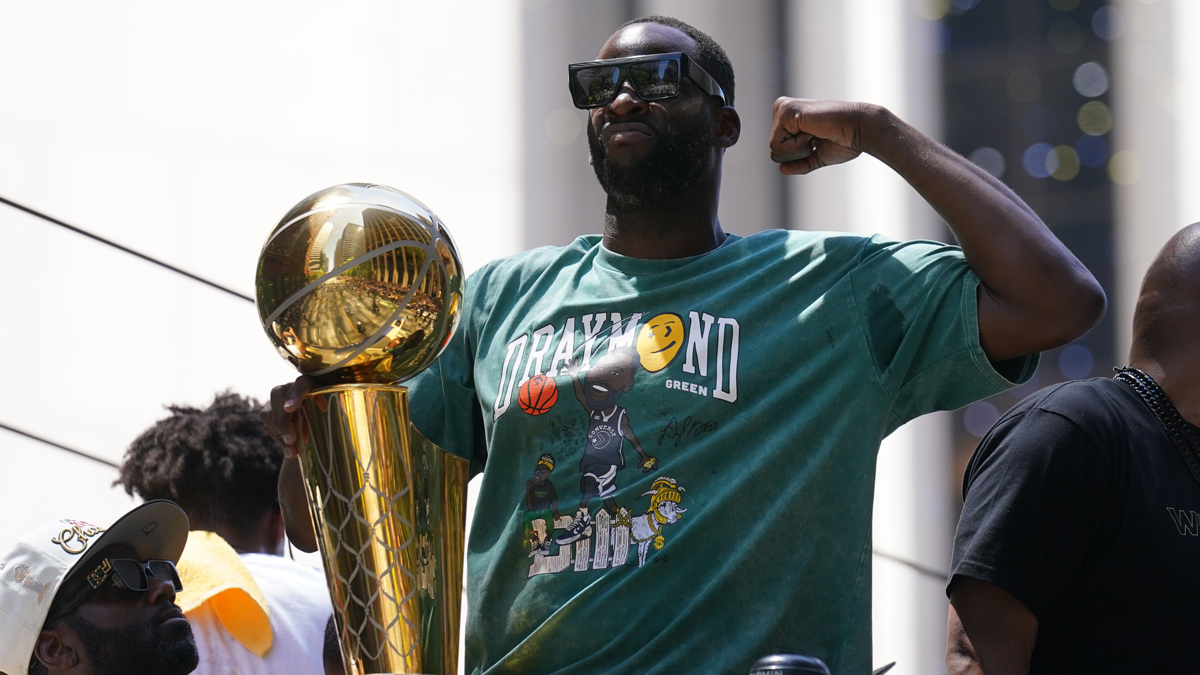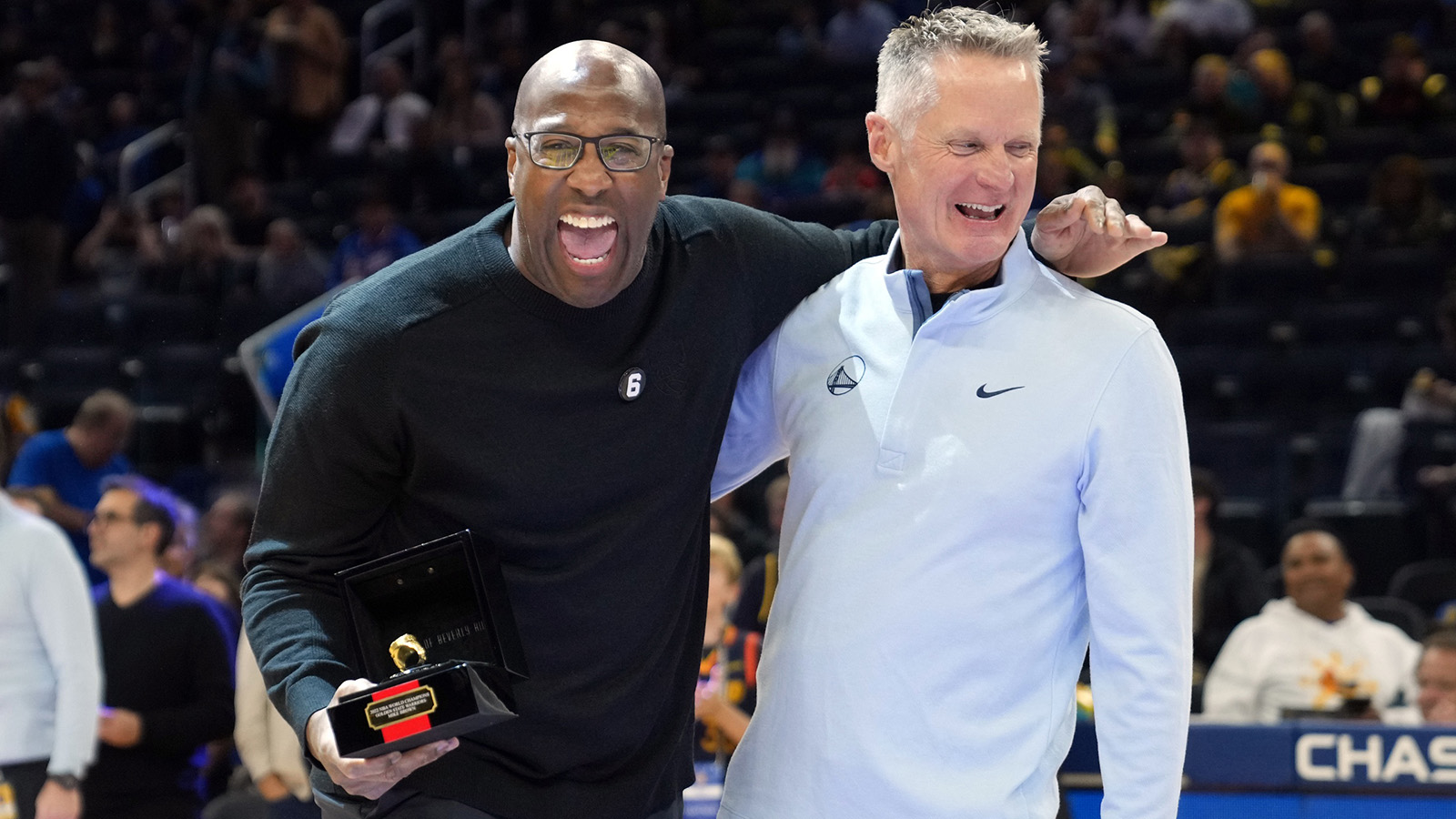
Editor's note: "One of the great mysteries -- The story of three 49ers diagnosed with ALS" will be published on Wednesday, May 10. Subscribe to The 49ers Insider Podcast and have it delivered right to your phone.
When Dwight Clark announced in March he has ALS, it was a devastating blow to those around him and to his many fans.
For individuals who were around the 49ers in the mid-1960s, the news brought back some painful memories. More than 20 years after they were 49ers teammates, Gary Lewis, Matt Hazeltine and Bob Waters passed away from the rare disease.
Stay in the game with the latest updates on your beloved Bay Area and California sports teams! Sign up here for our All Access Daily newsletter.
As part of ALS Awareness Month, the latest edition of "The 49ers Insider Podcast" remembers those men with, "One of the great mysteries -- The story of three 49ers diagnosed with ALS."
The incidence of ALS (amyotrophic lateral sclerosis) is two per 100,000 people in the United States and it is estimated more than 20,000 Americans may be living with ALS at any given time, according to the ALS Association. Yet, on this one 49ers team, three players developed ALS and died within a short period of time in the late-1980s.
-- Matt Hazeltine graduated from Tamalpais High in Mill Valley and was a star at the University of California. He was inducted into the College Football Hall of Fame posthumously in 1989. Hazeltine played 14 seasons with the 49ers from 1955 to ’68 as a linebacker.
He died on Jan. 13, 1987, at the age of 53. That year, Bill Walsh introduced the Hazeltine Iron Man Award, which is given annually to the 49ers most courageous and inspirational defensive player.
News
-- Gary Lewis went to high school at San Francisco’s Polytechnic High, across the street from Kezar Stadium. He also played running back at City College of San Francisco before finishing his college career at Arizona State.
Lewis was a sixth-round draft pick of the 49ers in 1964. He played six seasons with his hometown team. Lewis was diagnosed with ALS in November of 1986 and died less than a month later. He was 44.
-- Bob Waters played four seasons with the 49ers from 1960 to ’63 as a quarterback and defensive back. He was on the 49ers during training camp in 1964 before going into coaching. Waters threw the first touchdown pass out of coach Red Hickey’s shotgun formation in leading an upset over the two-time defending NFL champion Baltimore Colts in 1960.
Waters served 20 seasons as head football coach at Western Carolina. He devoted the final years of his life trying to find answers to solve this mystery. Waters contacted as many of his former teammates as possible to see if they were experiencing similar problems.
Studies were done that examined the use of DMSO, painkillers and, even, the fertilizer used on the 49ers practice field in Redwood City.
“He led a single-minded, tough, courageous mission to get as much information as possible,” said Dr. Stan Appel, chair of the department of neurology at Houston Methodist, who worked closely with Waters.
“We never quite resolved why there had been three players amongst a small group that developed ALS.”
Waters died on May 29, 1989. He was 50.
Waters’ wife, Sheri, said she was saddened to learn of Clark’s diagnosis.
"I am very sorry to learn about Dwight Clark's ALS diagnosis,” Sheri Waters told NBC Sports Bay Area in a statement. “I know how difficult it will be for Dwight and his family, as they adjust to this news. Bob would be very sad to know that after all his efforts to seek information to help find a cure for this horrible disease, ALS continues to affect these good men.
“I know that Bob died believing that one day there would be no more ALS. I am still so proud of Bob for his courage and willingness to help others. I wish the very best for the Clark family."
While publicly disclosing his condition on March 19, Clark made the following statement:
“I’ve been asked if playing football caused this. I don’t know for sure. But I certainly suspect it did. And I encourage the NFLPA and the NFL to continue working together in their efforts to make the game of football safer, especially as it relates to head trauma.”
Said Dr. Appel, “What Dwight Clark is saying is right on target. Namely, let’s do everything we can to find the causes, to find the therapies that are meaningful for him and for all present and future cases of ALS.”
Former 49ers running back Ken Willard, 73, has not experienced any alarming physical conditions in his post-football life. He cautions against automatically assigning blame to the sport of football.
“Some people try to simplify this issue, but it’s a very complex issue,” Willard said. “I think there’s a lot of research that’s yet to be done. (But) as far as being concerned, I think you’re a fool if you’re not concerned.”
Dr. Appel pointed out there have been studies that claim the incidence of ALS with former football players is four times greater than the general population. But, he said, the data is “far from convincing from a scientific point of view.”
“We know that any sort of trauma can be aggravating in a number of conditions,” Dr. Appel said. “But whether trauma causes it, there is no evidence that trauma causes it, and therefore there is no evidence in football players that trauma will cause ALS.
“Now, there are data that suggests that perhaps once you’re going to get ALS that it can make it worse. And that data is still contested. But I’m a believer that trauma can aggravate ALS, even if it doesn’t start it.”
This edition of the “49ers Insider Podcast” is dedicated to the memories of Gary Lewis, Matt Hazeltine and Bob Waters.


